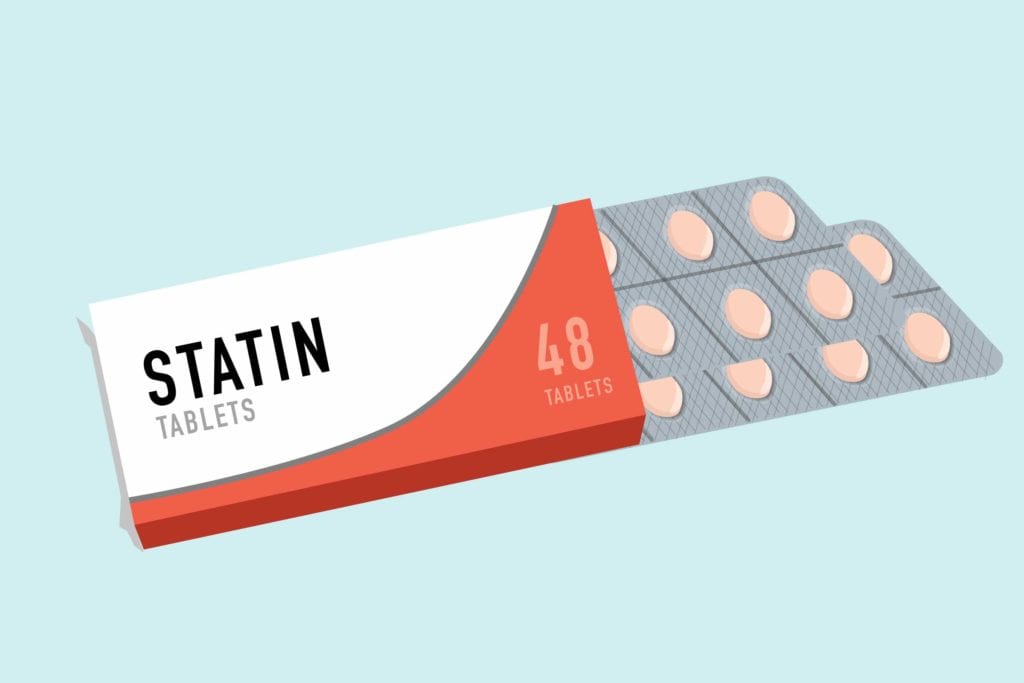

Statin drugs are widely used to help lower cholesterol levels and prevent heart attacks and heart disease, but these drugs can have wide-ranging impacts throughout your body — including your joints.
A growing body of research suggests that statins may affect joint pain for either better or worse, depending on the study you’re reading. Now the results of a new study from Italian researchers, published in the journal Arthritis Care & Research, adds to the debate.
The researchers followed a group of 4,448 people who all had knee osteoarthritis with pain or who were at a high risk of developing knee osteoarthritis, because of their family history or obesity. They researchers surveyed the participants about which statin drugs they were taking. They followed the participants for four years to see how participants’ osteoarthritis was affected.
They found that people who took statins did not report a significant decrease in risk for worsening pain, with one exception: Those people who had been taking statins for longer than five years did report a decrease in pain.
However, the particular kind of statin may matter. While atorvastatin (Lipitor) was linked with a lower risk of worsening pain, rosuvastatin (Crestor) was associated with an increased risk of worsening pain.
Past studies have also reported a link between statins and a decreased risk of osteoarthritis. A Dutch study from 2012 found that people with knee osteoarthritis who took statins had a 50 percent reduction in the progression of their OA compared with people who didn’t take statins. A UK study from 2013 found that people on the highest doses of statins were 60 percent less likely to have osteoarthritis than those who weren’t on them.
How Could Statins Ease Osteoarthritis Pain?
Statins work in the liver to lower cholesterol by blocking a liver enzyme that produces cholesterol. But statins also have strong anti-inflammatory properties. When it comes to osteoarthritis, statins may reduce the level of inflammatory cytokines (proteins released by the immune system) and interfere with the immune system’s T cells — both of which influence osteoarthritis, MedPage Today reports.
It may also be the case that having high levels of fat in the blood, which is what causes high cholesterol, may also contribute to a faster progression of osteoarthritis. So by helping to lower levels of blood fats, statins could benefit your heart and knees at the same time.
According to MedPage, a possible explanation for the lower pain risk among people taking atorvastatin is its lipophilic properties, which can prevent collagen breakdown in the cartilage of the knee.
How Could Statins Worsen Osteoarthritis Pain?
However, statins are also known for causing muscle pain as a potential side effect. Muscle pain doesn’t affect everyone taking statins, but for some people, it can be a challenging side effect and ultimately cause them to discontinue taking the drugs.
Of course, muscle pain and joint pain are separate issues, and more research is needed to understand how and why statins, or certain types of statins, might increase joint pain for some people. Some research has found links between statin use and OA progression. In a 2012 study published in the journal Annals of the Rheumatic Diseases, researchers found that taking statins for longer periods was linked with people reporting worsening physical function scores.
If You’re Taking Statins, Here’s What These Findings Mean for You
It’s premature for doctors to prescribe statins specifically to treat osteoarthritis symptoms or prevent disease progression.
But if you’re taking statins to manage your cholesterol levels, it’s good to be aware that they could have an impact on the health of your knees and other joints.
If you’re concerned about your osteoarthritis risk, ask your doctor about which kind of statins might be best to help improve both your heart and joint health.





